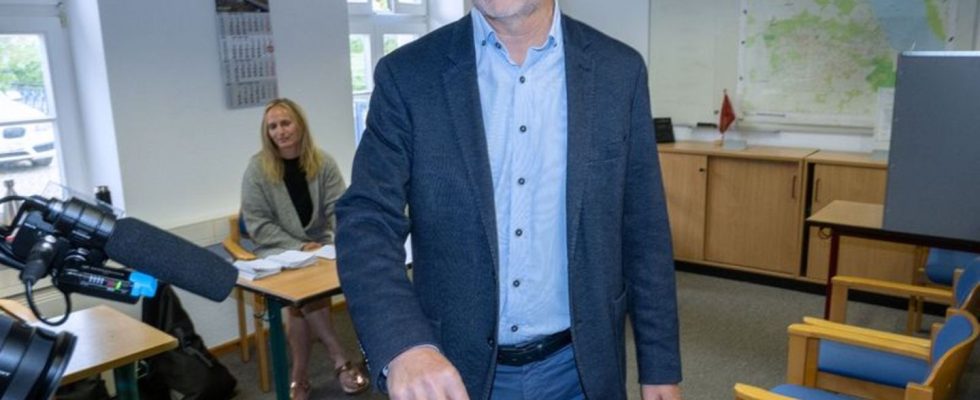referendum
Greifswald: No urban areas for refugee containers
Mayor Stefan Fassbinder votes in the referendum on container accommodation in Greifswald. photo
© Stefan Sauer/dpa
Many people in Greifswald do not want container accommodation for refugees in urban areas – that is the result of a referendum. Refugees will come anyway.
In Greifswald, municipal land may no longer be used for containers to accommodate refugees for the next two years. This is the result of a referendum on Sunday. According to the preliminary result, more than 65 percent voted “no”. According to the city, this majority also met the required minimum participation of at least 25 percent of those entitled to vote. The city is now bound by the decision for two years.
“There is a democratic decision. It goes without saying that we accept it,” said Stefan Fassbinder (Greens), Mayor of Greifswald. “The district administrator will have a harder time accommodating refugees. The result clearly shows that the issue of immigration still needs to be discussed intensively.”
The city had previously pointed out that the decision has no influence on whether and how many refugees are assigned to the city by the district. Container accommodation is therefore still conceivable on areas owned by private owners. The city had also stated that the elimination of containers as an option increases the risk that gyms will be used in an emergency. If, on the other hand, a referendum is held, it will also be carried out properly, said Fassbinder.
Lord Mayor: “External impact more negative than positive”
“I think we’re still a tolerant and cosmopolitan city. We stand by it. This vote doesn’t change that,” said the mayor. “But I don’t want to hide the fact that the external impact is more negative than positive.” He is particularly concerned about the immigration of the required skilled workers.
Greifswald – the only city in the east with a mayor from the Greens – joined the “Cities of Safe Havens” alliance some time ago by means of a citizenship resolution and thus declared its willingness to take in more refugees than would be allocated in purely mathematical terms. The district considers the Hanseatic and university city to be particularly suitable for taking in refugees because of the comparatively good infrastructure and many committed people.
At the beginning of the year there was strong protest against a large container accommodation in the Hanseatic city. Corresponding plans are now off the table. The citizenship had decided that decentralized accommodation would be preferred, for example in apartments. Container accommodation should only be an emergency solution and not as large as originally intended. Nevertheless, the protest that started at the beginning of the year gave rise to a citizens’ initiative, which brought about the decision by collecting thousands of signatures. Fassbinder said that in the future more efforts must be made to engage in dialogue so that immigration can succeed.

